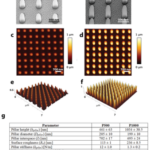ADHDの症状が強い成人は、自閉症の特徴が強い成人に比べて、不安や抑うつを抱えやすいことが、新しい研究で明らかになりました。 Adults with high levels of ADHD symptoms are more likely to have anxiety and depression than adults with high levels of autistic traits, new research finds.
2023-01-16 バース大学
この研究は、ADHDが、自閉症のような他の神経発達条件よりも、成人の精神衛生上の悪い結果を予測することを示す最初のものです。
これまで、ADHDが精神的健康に及ぼす影響に関する情報は乏しく、うつ病、不安、生活の質に対する自閉症の影響に焦点を当てた研究がはるかに多く行われてきました。その結果、ADHDを持つ人々は、しばしば、自分の症状に対処するために必要な臨床ケアにアクセスするのに苦労してきました。
この研究の著者らは、この研究結果がADHDに関する新たな研究の引き金となり、最終的にADHDを持つ人々の精神的な健康状態が改善されることを期待しています。ADHDは、不注意や多動性、衝動性を特徴とする神経発達症です。この疾患は、人口の3%から9%が罹患していると推定されています。
この新しい研究は、バース大学、ブリストル大学、カーディフ大学、キングスカレッジロンドンの共同研究であり、今週、権威ある雑誌「サイエンティフィック・リポーツ」に掲載されています。
この研究では、英国を代表する大規模な成人サンプルが使用されました。すべての参加者は、ゴールドスタンダードの質問票(自閉症特性に関するものと、ADHD特性に関するもの)を記入し、”私は頻繁に一つのことに強く夢中になる”、”あなたはどれくらいの頻度で、モーターに動かされたかのように、過度に活動的で何かをしなければならないと感じるか “などの文に回答した。
その結果、ADHDの特性は、不安やうつ症状の重症度を高度に予測することがわかりました。ADHDの特性レベルが高いほど、重度の精神的健康症状を経験する可能性が高くなるのです。さらに、革新的な分析手法により、ADHDの性格が強いほど、自閉的な性格よりも不安や抑うつに強く関連することが確認されました。
<関連情報>
- https://www.bath.ac.uk/announcements/the-link-between-mental-health-and-adhd-is-strong-so-why-arent-we-paying-attention/
- https://www.nature.com/articles/s41598-022-26350-4
注意欠陥多動性障害特性は、自閉症特性よりも内面化問題の重要な予測因子である Attention-deficit hyperactivity disorder traits are a more important predictor of internalising problems than autistic traits
Luca D. Hargitai,Lucy A. Livingston,Lucy H. Waldren,Ross Robinson,Christopher Jarrold & Punit Shah
Scientific Reports Published:16 January 2023
DOI:https://doi.org/10.1038/s41598-022-26350-4
Abstract
Autism Spectrum Disorder (ASD) and Attention-Deficit Hyperactivity Disorder (ADHD) are both linked to internalising problems like anxiety and depression. ASD and ADHD also often co-occur, making their individual statistical contributions to internalising disorders difficult to investigate. To address this issue, we explored the unique associations of self-reported ASD traits and ADHD traits with internalising problems using a large general population sample of adults from the United Kingdom (N = 504, 49% male). Classical regression analyses indicated that both ASD traits and ADHD traits were uniquely associated with internalising problems. Dominance and Bayesian analyses confirmed that ADHD traits were a stronger, more important predictor of internalising problems. However, brief depression and anxiety measures may not provide a comprehensive index of internalising problems. Additionally, we focused on recruiting a sample that was representative of the UK population according to age and sex, but not ethnicity, a variable that may be linked to internalising disorders. Nevertheless, our findings indicate that while ASD and ADHD uniquely predict internalising problems, ADHD traits are a more important statistical predictor than ASD traits. We discuss potential mechanisms underlying this pattern of results and the implications for research and clinical practice concerning neurodevelopmental conditions.


